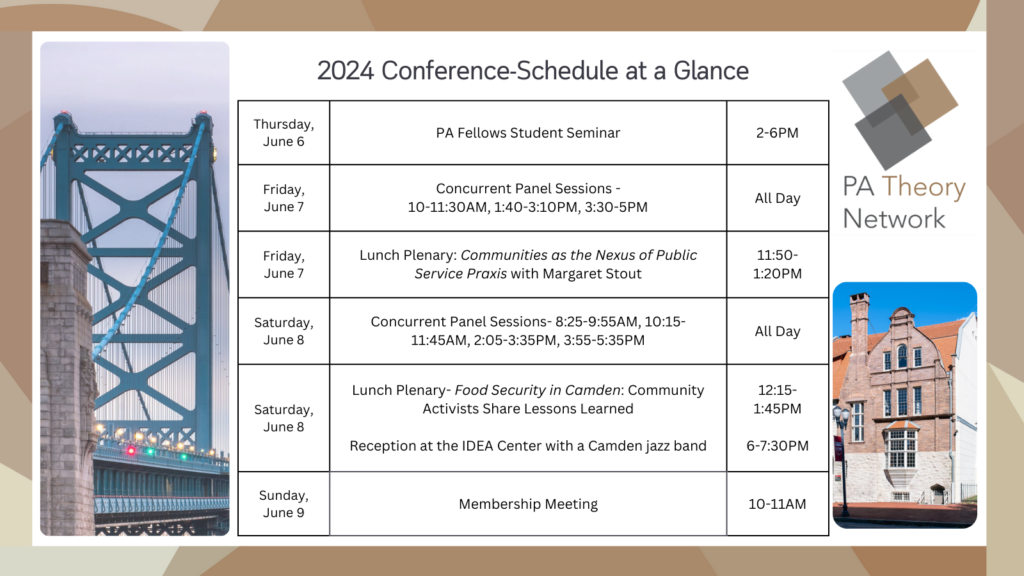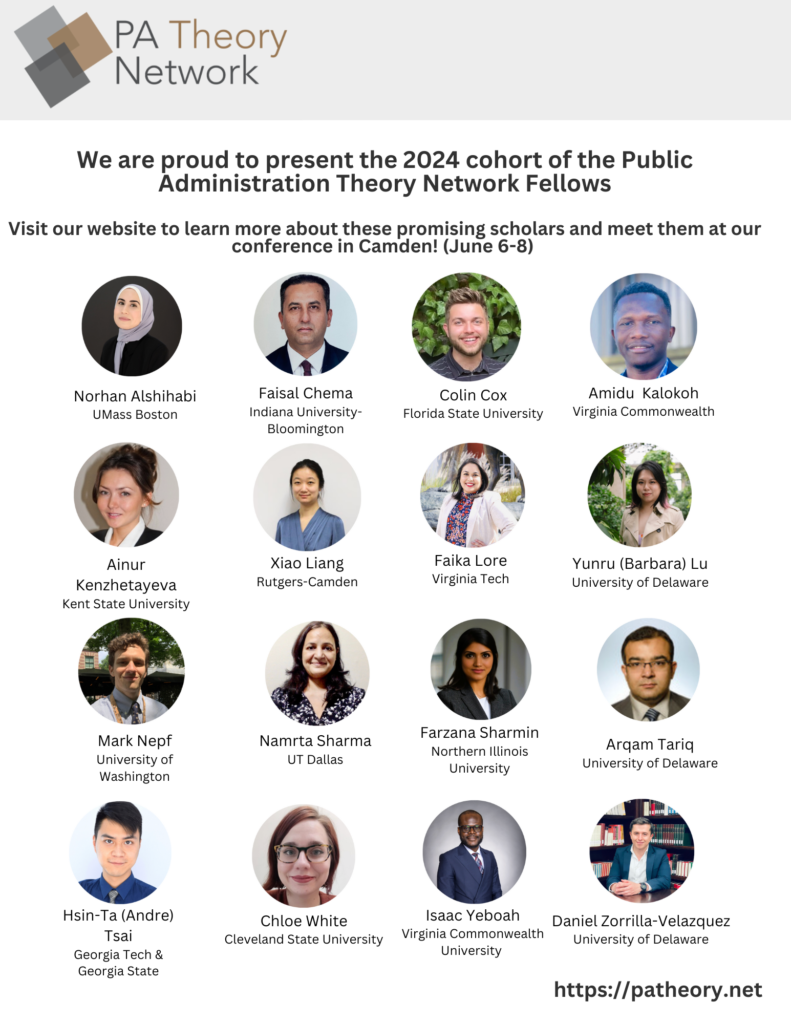2024 Public Administration Theory Network (PATNet) Conference
Theory, Practice, and Communities: Big Thoughts, Real Action
June 6 – 9, 2024 | Camden, NJ | Hosted by

Ready to register? Click on the link: 2024 Conference Registration
PATNet 2024 Conference Information and Call for Papers
Please note that we are considering proposals on a rolling basis.
Why Join Us in Camden (apart from the amazing conference of course)?
- The IDEA Center is hosting concurrent panels in their nonprofit supporting community arts and arts education. https://ideacfta.org/home
- La Unique African American Bookstore is hosting a concurrent panel in this long established hub of the Camden community. https://lnkd.in/ebREJfhS
- Five minutes away by uber or subway is Center City Philadelphia, complete with more James Beard award winning restaurants in 2023 than LA, New York, or Chicago.https://lnkd.in/ei4GWJTb
- Camden is easily accessible by train and car within a few hours of 17% of the U.S. population, but remains incredibly affordable for visitors.
We look forward to seeing you in Camden!
Booking at the conference hotel (Hilton Garden Inn)? You can call 800-455-8667 and ask for the “PA Theory Conference at Rutgers” room rate.

PA Theory Network Fellows Program
PAT-Net recognizes graduate students who show interest and promise in scholarship that is devoted to critically understanding government, governance, and administration. Fellows engage in a pre-conference workshop. They receive a complimentary conference registration and a one-year PA Theory Network membership. The mentorship, connections, highlighting, and ideas that are generated from the Fellowship are unique in the field, and cherished by many scholars.
Congratulations to our 2024 cohort!

